Search
Search Results
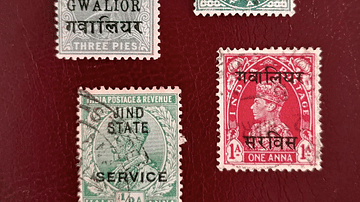
Image
Indian Princely States Postage Stamps
Four examples of British India postage stamps issued with overprints for use in particular Indian princely states. Top left: Queen Victoria, Gwalior, 1904 Top right: Queen Victoria, Patiala, 1895 Bottom left: King George V, Jind State...
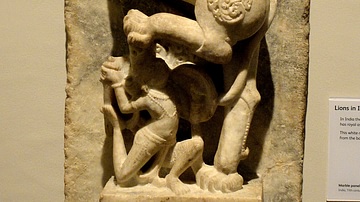
Image
Sculpture of an Indian Lion
In India, the lion is known as the Lord of Beasts and has royal associations. This marble white panel is an architectural figure from the base of an Indian temple. From India, 11th century CE. (National Museum of Scotland, Edinburgh, UK)
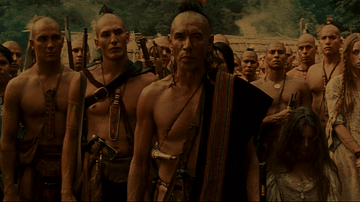
Image
Mohicans During the French and Indian War
Madeleine Stowe, Jodhi May, Wes Studi, and Steven Waddington in The Last of the Mohicans (1992). Image by Morgan Creek Productions.
The movie is set in 1757 during the French and Indian War.
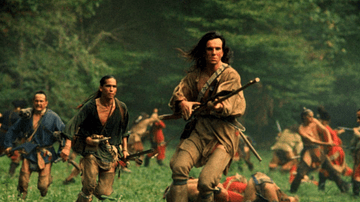
Image
A Battle During the French and Indian War
Daniel Day-Lewis, Russell Means, and Eric Schweig in The Last of the Mohicans (1992). Photo by Morgan Creek Productions.
The movie is set in 1757 during the French and Indian War.

Definition
Indigo Revolt
The Indigo Revolt (aka Indigo Riots or Blue Mutiny) of 1859-60 in Bengal, India, involved indigo growers going on strike in protest at working conditions and pay. The subsequent violence was aimed at exploitative European plantation owners...
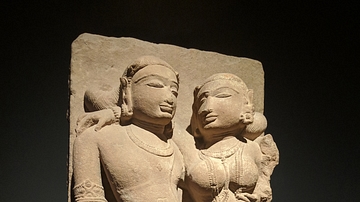
Image
Amorous Indian Couple Relief
Amorous couple from central India, Chandella Dynasty, 11th century CE.
Exhibited at Museum Rietberg, Zurich, Switzerland.
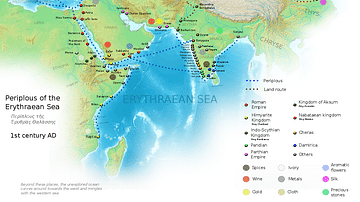
Image
Ancient Indian Maritime Trade Routes
This map is derived from the book Periplus of the Erythraean Sea. It depicts trade routes in the ancient world, ports in the Chera territory and other parts of India and the trade routes connecting them to other parts of the world along with...
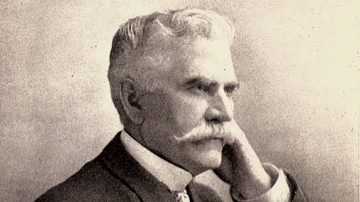
Image
James McLaughlin, US Indian Inspector
James McLaughlin (l. 1842-1923), US Indian Inspector of the Bureau of Indian Affairs, best known for ordering the arrest of the Sioux Chief Sitting Bull in December 1890 and requesting the troops that participated in the Wounded Knee Massacre...

Definition
Wounded Knee Massacre
The Wounded Knee Massacre of 29 December 1890 was the slaughter of over 250 Native Americans, mostly of the Miniconjou people of the Lakota Sioux nation, by the US military at Wounded Knee Creek, South Dakota. Although the US government defined...

Image
Indian Massacre of 1622
Indian Massacre of 1622. A colorized version of a woodcut by Matthaeus Merian published along with Theodore de Bry's earlier engravings in a book on the New World, 1628. The engraving shows the 1622 massacre when Powhatan Indians attacked...